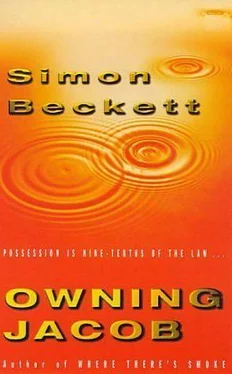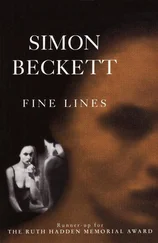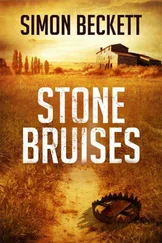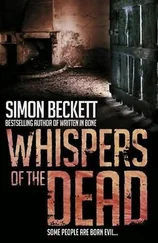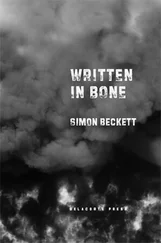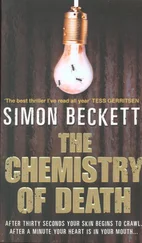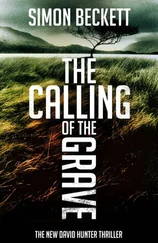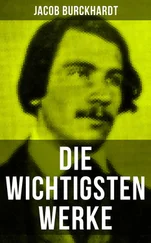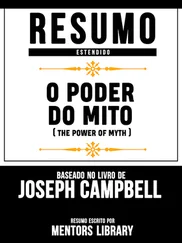Simon Beckett - Owning Jacob - SA
Здесь есть возможность читать онлайн «Simon Beckett - Owning Jacob - SA» весь текст электронной книги совершенно бесплатно (целиком полную версию без сокращений). В некоторых случаях можно слушать аудио, скачать через торрент в формате fb2 и присутствует краткое содержание. Город: London, Год выпуска: 1998, ISBN: 1998, Издательство: Hodder & Stoughton, Жанр: Триллер, на английском языке. Описание произведения, (предисловие) а так же отзывы посетителей доступны на портале библиотеки ЛибКат.
- Название:Owning Jacob - SA
- Автор:
- Издательство:Hodder & Stoughton
- Жанр:
- Год:1998
- Город:London
- ISBN:978-0-340-68594-5
- Рейтинг книги:3 / 5. Голосов: 1
-
Избранное:Добавить в избранное
- Отзывы:
-
Ваша оценка:
- 60
- 1
- 2
- 3
- 4
- 5
Owning Jacob - SA: краткое содержание, описание и аннотация
Предлагаем к чтению аннотацию, описание, краткое содержание или предисловие (зависит от того, что написал сам автор книги «Owning Jacob - SA»). Если вы не нашли необходимую информацию о книге — напишите в комментариях, мы постараемся отыскать её.
Owning Jacob - SA — читать онлайн бесплатно полную книгу (весь текст) целиком
Ниже представлен текст книги, разбитый по страницам. Система сохранения места последней прочитанной страницы, позволяет с удобством читать онлайн бесплатно книгу «Owning Jacob - SA», без необходимости каждый раз заново искать на чём Вы остановились. Поставьте закладку, и сможете в любой момент перейти на страницу, на которой закончили чтение.
Интервал:
Закладка:
Provided that Kale wasn’t sent to prison, of course.
Ben told himself he should be pleased, but somehow he couldn’t manufacture any satisfaction. The memory of Kale being handcuffed and dragged out was too vivid.
He felt he’d made things worse, not better.
He felt like he’d broken something.
The day after the case conference he’d considered getting in touch with Sandra Kale. In the end, though, he hadn’t. He couldn’t imagine she would want to talk to him, and he wouldn’t have known what to say anyway. ‘Sorry’ was pathetically inadequate when someone’s life had been wrecked.
Instead he’d burned all the photographs and negatives he had of her. It seemed an empty gesture, and as he watched the paper and cellulose flare and blacken he’d been seized by the urge to add to it. He’d fetched the telephoto lens and polarising filter and carried them outside to the fire. He’d thrown the filter on straightaway, but hesitated with the lens. It ran through his mind that it was an expensive piece of equipment. If he wanted to atone it would be better to sell it and send Sandra the money.
He’d weighed the familiar heft of it in his hands, then tossed it into the flames.
A man with two children came to the next grave. Ben and the man nodded in acknowledgment, then pretended the other wasn’t there. The children were subdued but their voices still cut through the cemetery’s silence.
With a last look at Sarah’s grave, Ben picked up the dead flowers and walked away. He detoured towards a bin on his way out. It was full of other flowers that had been discarded. Broken stems protruded through its wire-mesh sides, and the once-bright petals of chrysanthemums, roses and carnations were crushed and faded, turning to rot. He dropped his own on top, then paused. After a moment he went to the car for his camera.
He used a full film, photographing the bin from different angles. He would have gone on except that an elderly woman was watching him suspiciously. When she began walking over with an intent swing to her walking stick, he packed up and left.
As he drove away he was struck with his own morbidity.
The symbolism of a rubbish bin of dead flowers in a cemetery, a graveyard within a graveyard, was so obvious as to be hackneyed.
He’d be reading the death notices in the newspapers next. He tried to laugh at the thought, but the mood wasn’t so easily broken. He knew he was waiting for something to happen, without knowing what.
When he was a teenager he’d had recurring dreams that woke him in a blaze of terror, convinced he was on the verge of some unspecified calamity that he could never quite see. It was like that now. His rational mind insisted it was just anticlimax, that he was simply unsettled, but it lacked conviction.
Nothing had been resolved. In spite of everything this was only a lull, a hiatus. Everything else had been a prelude. Now that Kale’s psyche had been stripped bare, the civilised skin of restraint and control finally shed, Ben couldn’t begin to imagine what the man might do, or where he would stop.
He was frightened of finding out.
It was on the news two mornings later. He’d been to a match with Colin the evening before, a Spurs-Arsenal derby that Tottenham had lost miserably, and he was preoccupied with that as he made his breakfast.
It was the first time they had been out together since the attempted suicide. On the surface Colin seemed to be back to normal. He never mentioned what had happened, or the girl who had triggered it, and had gone back to work after a few days as though it had never happened.
Even so, Ben got the impression that something was missing. It was as if a part of Colin had died back there in the car. Or perhaps before, when the girl finished with him. Talking to him now was like listening to music through a Dolby system. It was a muted, filtered version, all the brightness and crackle skimmed off.
Ben hoped it wouldn’t be permanent.
The news was on the radio but he wasn’t paying any attention to it. Colin and Maggie were due to go on holiday the following day, taking Scott and Andrew to Disneyland, and as the report of a woman’s murder droned on in the background Ben was wondering if Colin’s fragile psyche would be up to the sight of Maggie rubbing shoulders with Minnie Mouse.
He was pouring milk on his cornflakes when Sandra Kale’s name leapt out at him.
He jerked as if struck.
“...body was found in the garden of her house last night by a neighbour,” the newsreader was saying. “It’s thought she was beaten to death. Thirty-one-year-old Mrs Kale was the wife of John Kale, who last year made the headlines when he was reunited with his kidnapped son after six years. Police are looking to interview Mr Kale, who was released from police custody on bail yesterday, after assaulting social workers last week.”
The newsreader went on to the next story.
Ben heard something dripping and saw that he was still holding the milk bottle at an angle. He put it down but made no attempt to stem the spreading white pool that was trickling off the edge of the work surface. He felt dizzy, then sick. Then both passed. He looked around the kitchen, seized with the need to do something, but without any idea of what. Numb, he sat down.
My fault. My fault.
He stood up again, unable to bear being still. He went to the phone and dialled Directory Inquiries for the number of the police station in Tunford. The policeman who answered didn’t sound like the one he had seen after Kale had shot the dog. He gave Ben the number for the incident room. When he rang it a policewoman politely asked who he was and why he was calling. He tried to explain, but knew he wasn’t making a very coherent job of it. He wasn’t really sure himself. The policewoman said she would pass on his message and thanked him for getting in touch.
He hung up and stared into space. Then he wiped up the milk and went out. There was no reason for him to be at the studio so early, but he needed to get out of the house. He hadn’t gone a mile before it occurred to him where he really wanted to go.
He turned around and headed for Tunford.
Colin called him on his mobile when he was on the motorway. “Have you heard?” Ben said he had. “I’m on my way up there now.”
“To Tunford? Is there any point?”
“I don’t know.”
He did, though. He needed to know that Jacob was safe, to make sure that the police were protecting him. But he didn’t want to discuss it, didn’t even want to think about it, until he knew for sure.
“Will you phone San—” Shit. “—I mean Zoe, for me. Ask her to cancel today’s shoot. Tell her... well, just tell her what’s happened.”
Zoe would be able to think of a better excuse than he could.
A heaviness grew in him the closer he drew to the town.
It was a cold and bright morning. The sky was a clear, arctic blue. He passed familiar landmarks; this was the turnoff he always took; that was the road that led to the woods; there was the police station; the pub. It was all unchanged, bleak and battened down for winter. He could almost believe the news report was wrong.
Then he turned on to the Kales’ street and saw the cluster of police vehicles and knew it wasn’t. Neighbours stood watching from doorways or bunched in small groups. Some of them were being questioned by uniformed police officers. He drove past, stopped and got out. The Kales’ front door was open. Yellow tape sealed off the path and garden. A large white trailer with a band of black checks running down its length was parked outside. Steps ran up to a door, and as Ben approached it opened and a policewoman emerged. She saw Ben and came towards him.
“Can I help you, sir?”
Читать дальшеИнтервал:
Закладка:
Похожие книги на «Owning Jacob - SA»
Представляем Вашему вниманию похожие книги на «Owning Jacob - SA» списком для выбора. Мы отобрали схожую по названию и смыслу литературу в надежде предоставить читателям больше вариантов отыскать новые, интересные, ещё непрочитанные произведения.
Обсуждение, отзывы о книге «Owning Jacob - SA» и просто собственные мнения читателей. Оставьте ваши комментарии, напишите, что Вы думаете о произведении, его смысле или главных героях. Укажите что конкретно понравилось, а что нет, и почему Вы так считаете.
